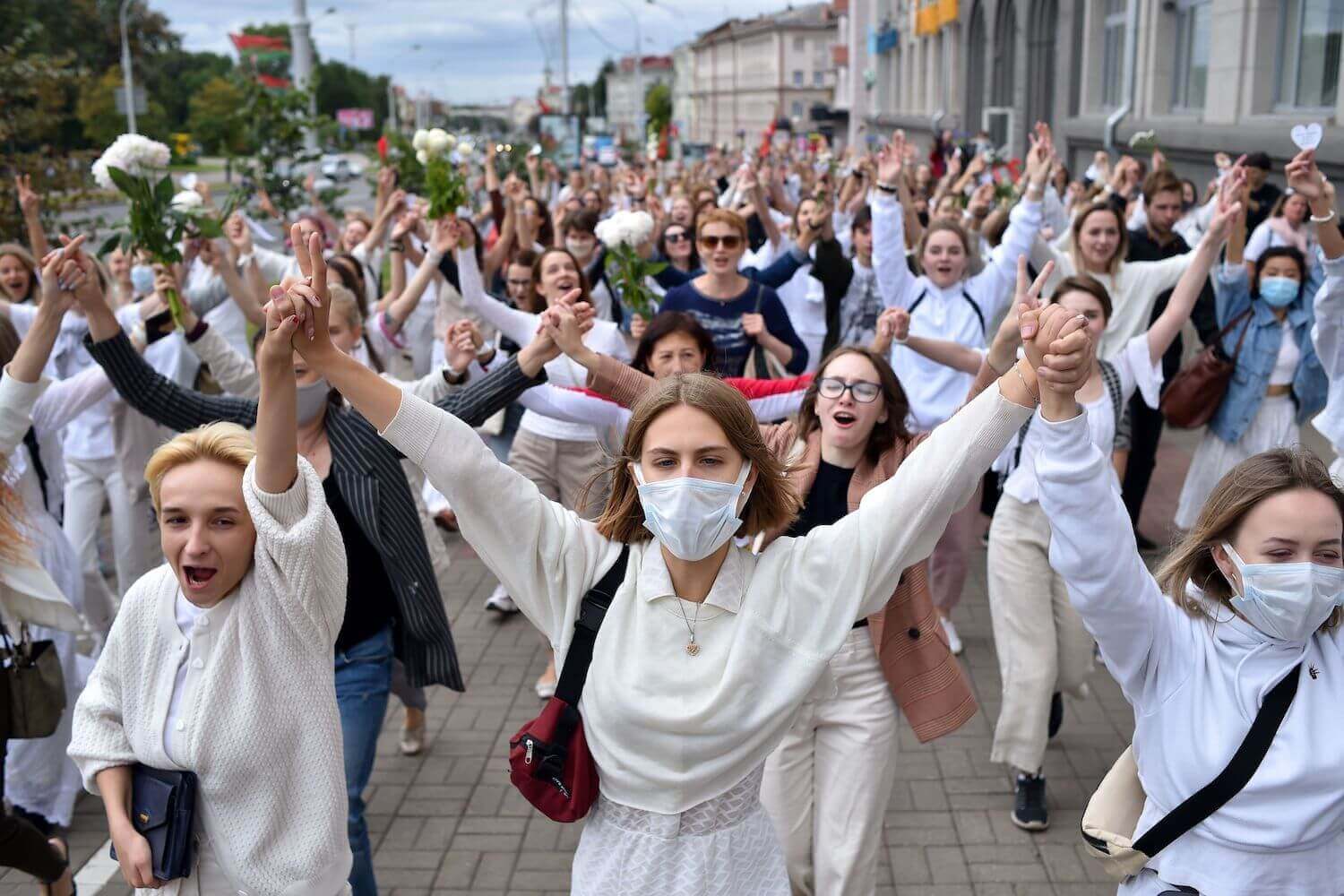The United Nations (UN) High Commissioner for Human Rights, Michelle Bachelet, has condemned the use of force by Belarusian security forces on largely peaceful protests throughout the country against Sunday’s election results. Authorities have arrested at least 6,000 people—including many journalists—and two have been killed in the violent aftermath of a vote that extended President Alexander Lukashenko’s 26-year rule, which observers have criticized as neither free nor fair.
Clashes erupted between protesters and riot police in Minsk and other cities in Belarus on Sunday, after a state TV exit poll said that longtime leader Alexander Lukashenko had secured a landslide victory against his main challenger Svetlana Tikhanovskaya with 79.7% of the vote. Thousands of people took to the streets across the country, chanting “LEAVE!” as the police used water cannons, rubber bullets, flash grenades, and teargas to quash protests. There were reports of injuries and dozens of arrests, though the interior ministry denied that anyone was wounded.
Also read: Clashes Erupt After Belarus Election, as Polls Predict Victory for Incumbent Lukashenko
Bachelet urged Belarusian authorities on Wednesday to immediately release all those who were unlawfully detained, and investigate rights abuses. “I remind the Belarusian authorities that the use of force during protests should always be exceptional and a measure of last resort,” she said, adding that security forces must “clearly differentiate between any violent individuals and peaceful protesters, against whom force should not be used.” She also stressed that people had the right to speak up and express dissent and that their complaints must be heard.
The situation in Belarus has also prompted action from the European Union (EU), which is set to meet on Friday to discuss sanctions against Belarus, targeting those responsible for the violence against the protesters, and election fraud. Josep Borrell, EU’s foreign affairs chief, in a statement on Monday, slammed the “disproportionate and unacceptable” state violence against peaceful demonstrators and called on Belarusian authorities to ensure the respect for the fundamental right of peaceful assembly.
On Tuesday, Belarusian opposition leader Svetlana Tikhanovskaya said she had fled to Lithuania for the sake of her children. Lithuanian Foreign Minister Linas Linkevicius said that although Lithuania was not trying to interfere in Belarus’ internal affairs, it would not just sit aside and observe the unfolding situation, but rather “do the utmost” to help “find some understanding and start a political dialogue” with Minsk.
Poland has also called for a special EU summit, to discuss the protesters’ demands on fighting corruption and respecting basic rights such as freedom of speech and the rule of law. Polish PM Mateusz Morawiecki said it was the EU’s duty to respond to Belarusians’ call for change, and that it should exchange ideas on how best to help them.

